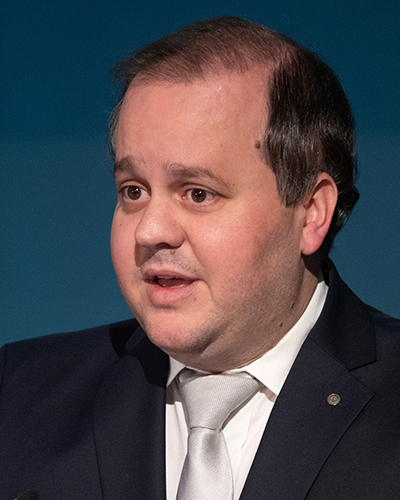
Csaba Janáky graduated as a chemist (2007) and economist (2009) at the University of Szeged, and obtained his PhD degree (2011) from the same university. He was a Marie Curie was a fellow at the UT Arlington (USA), and his project was selected as one of the program's success stories. In 2014, with the support of the MTA Momentum Program, he founded a research group at the University of Szeged. He has successfully built up a research group at the border of materials orientated electrochemistry and photoelectrochemistry, which carries out cutting-edge activities in both basic and applied research topics. This is indicated by 90 prestigious publications (full IF>800), 15 patent applications in the past 10 years, as well as foreign (e.g. ERC Starting, Consolidator and Proof-of-Concept Grant) and domestic grants. Fifteen of his papers were highlighted on the covers of prestigious journals (JACS, ACS Energy Letters, Advanced Energy Materials, Advanced Functional Materials, Chemistry of Materials Journal of Physical Chemistry C, Journal of Physical Chemistry Letters, ChemPhysChem). He is a member of several international scientific committees (e.g., ACS Energy Letters Editoral Advisory Board).
In addition to his own research group leadership, he is the co-director of the National Laboratory for Renewable Energy in Hungary. His research focuses on materials science aspects of electrochemistry and photoelectrochemistry. It examines and develops novel nanostructured electrodes that can be used in industrially relevant processes. He deals with metals, organic, inorganic and hybrid materials to explore various structure-property relationships. The main focus is on the reduction of CO2, during which useful fuels can be obtained from a greenhouse gas. His group is also active in developing various electrolyser technologies that produce hydrogen. Building on this knowledge base, he has achieved breakthrough results in the development of electrochemical hydrogen generators and the development of carbon dioxide electrolyser equipment, applicable in industry. In 2019, the H-Genie high-pressure hydrogen generator developed jointly with ThalesNano Energy Zrt. won the R&D 100 Award, also called the "Innovation Oscar", while their multilayer CO2 electrolyser cell serves as the state-of-the-art.



